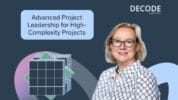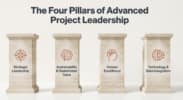One line that resonated deeply with me is the book’s opening question: “To be agile or to do agile?” This single question captures the heart of many agile transformations. It’s a mindset—transformations are not just checklists or projects; they are journeys, often with unpredictable turns.
Through my own experiences with agile adoption, I’ve seen the critical impact a supportive culture and brave leadership can have in navigating this ongoing change. However, many organizations struggle to differentiate between “being agile” and “doing agile,” a critical distinction eloquently addressed in Ahmet Akdag’s How to be Agile.
This book provides a refreshing, pragmatic, and courageous roadmap for organizations striving to be agile. Here are some of the insights and takeaways that stood out:
Key Takeaways
- Cultural Change is Non-Negotiable: Adopting agility requires a fundamental shift in organizational culture, starting with a willingness to challenge legacy systems and entrenched mindsets. The book emphasizes the importance of embedding agility into the organization’s DNA, not just its workflows.
- True Collaboration: Creating an environment where individuals feel safe to express ideas, challenge assumptions, and contribute authentically. It’s a crucial foundation for any agile environment to thrive.
- Breaking Down Silos: The book offers actionable strategies for dismantling silos and establishing cross-functional teams. This is presented not as a quick fix but rather as a step-by-step process to drive improved collaboration and innovation.
- Tailoring Agile Methods: Through detailed discussions of frameworks like Scrum, Lean, and Kanban, the author explains how to adapt methodologies to specific organizational contexts rather than applying them as one-size-fits-all solutions. Flexibility is key.
- Leadership and Continuous Learning: Leadership plays a vital role in fostering an agile culture. The book highlights how leaders can inspire iterative learning and adaptation, ensuring agility isn’t just a trend but a sustainable advantage.
If you’re a business leader, project manager, or agile practitioner, How to be Agile is a must-read. Whether you’re just embarking on the agile path, further refining your practices, or preparing for the PMI-ACP exam, this book offers insights that are practical, actionable, and inspiring.
How to be Agile makes a compelling case that agility isn’t a destination—it’s a way of operating, thinking, and collaborating in a constantly changing world. If your organization is ready to leverage agile as more than just a set of tools, this book is the guide you’ve been waiting for.





